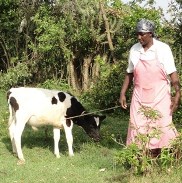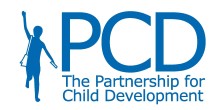Last Updated on Saturday, 13 December 2014 08:39
 News
News
News

Schistosomiasis and soil-transmitted helminths (STH) are two neglected tropical diseases (NTDs) that particularly affect school-age children’s health, education and future productivity. Over 400 million school-age children are infected by these diseases and hundreds of millions more are vulnerable to them. Periodic drug treatment for children in schools – known as school-based deworming – represents a highly strategic and cost-effective approach to tackling STH and schistosomiasis. Integrated programmes that deliver deworming, water, sanitation and hygiene (WASH), health education and other key interventions which can lead to even greater long-term impact.
Read more: School-Based Deworming: A Clear Role for the European Commission
Unilever said in a statement that its brands Royco is donating 600,000 school meals in Kenya and rallying people to pledge their support for building a world with zero hunger.
“Royco’s partnership with the WFP is an initiative that will help us give children access to nutritious food and the potential for a healthier life,” said Marc Engel, Unilever CEO for East Africa & Emerging Markets.
The meals will be delivered through WFP’s “Home Grown School Meals Programme” aimed at improving the lives of families, communities and farmers.
Read more: Unilever partners with WFP to tackle hunger in Kenya
To further food security within Nigeria's Osun State School Feeding and Health Programme (O-MEALS) through increased rice production, rice stakeholders and farmers in Osun State have been asked to participate in Nigeria's Strategic Grain Reserve (SGR) initiative.
Mrs. Olubunmi Ayoola, the Director and State Operation Officer for Osun Elementary School Feeding and Health Programme – O-MEALS, made the request during a stakeholder meeting organized by the O-MEALS Office in collaboration with Imperial College Lonodn's Partnership for Child Development (PCD).
Read more: Osun Rice Stakeholders Urged to Participate in Strategic Grains Reserve Project
Page 6 of 38




